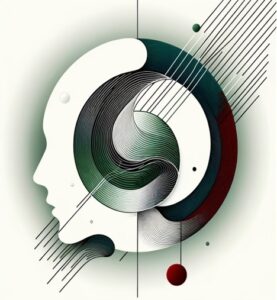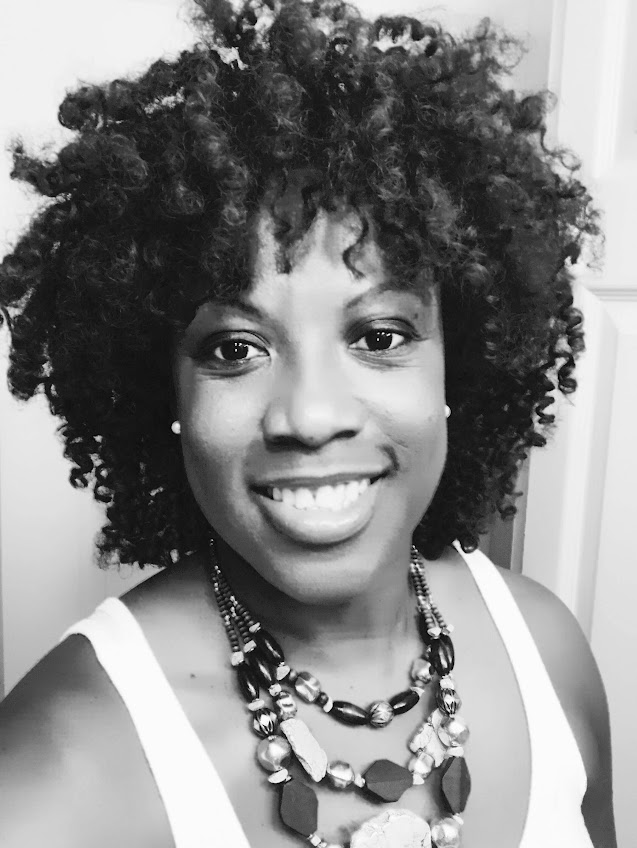
Is There More? Beyond Thoughts in Navigating Seeking Help
By Dr. Natasha Charles McQueen
The journey toward seeking mental health treatment is not linear. It is not always loud.
Sometimes it begins with a whisper: Is there more to what I’m feeling than just being tired? Just being stressed? Just having a rough week?
That question—Is there more?—can become the quiet entry point into a life-changing decision.
For many, the process is filled with reflection, hesitation, fear, and ultimately, hope.
Because choosing to seek help is more than a clinical step. It is an act of self-recognition. A decision to listen to your body, your mind, and your unmet needs.
In this piece, we explore what this decision often looks like—through symptoms, impact, and personal readiness—blending clinical understanding with real-life experiences that mirror what so many are silently going through.
Identifying Symptoms: The Quiet Beginning
Often, the first sign that something is wrong isn’t one loud symptom—it’s the slow accumulation of many. They start as background noise and grow until they demand attention.
Take John, a 30-year-old graphic designer. He did not label his experiences as depression at first. Instead, he noticed changes:
-
A persistent, heavy sadness that lingered past “bad days”
-
Cycles of anxiety and panic attacks that disrupted his sleep and work
-
Loss of appetite alternating with emotional overeating
-
Chronic fatigue, despite resting
-
Irritability and emotional swings that felt unmanageable
-
Withdrawal from social gatherings he once enjoyed
-
Trouble concentrating and making decisions
-
Thoughts of self-harm that arrived uninvited and alarming
-
Physical symptoms like headaches that seemed to have no cause
It was only when the symptoms affected his creative work—and he no longer felt like himself—that John began to consider help.
More Than Emotion: The Real Toll of Symptoms
Mental health struggles are not just emotional—they are embodied.
Emily, a college student, describes it this way:
“It wasn’t just feeling sad. It was my chest feeling tight all the time. It was skipping meals and not even realizing it. It was forgetting who I used to be—because I was just trying to make it through the day.”
Her academic life suffered. She missed classes. Her friendships thinned. Her sleep was erratic. The line between mental and physical health blurred completely.
This is how mental health symptoms show up—in our bodies, our relationships, our routines.
The Impact on Daily Life: Quiet Erosion
Mental health challenges do not always look dramatic. Often, they look like slow erosion:
-
Work and Academics: Alex, a dedicated teacher, began missing deadlines, forgetting lesson plans, and feeling deep guilt that only made things worse.
-
Relationships: Sarah, a new mother, found herself snapping at her partner, retreating from friends, and questioning if she was “doing it all wrong.”
-
Physical Health: Robert, a retired veteran, began experiencing high blood pressure and chronic pain. It was not until therapy that he realized how much stress was living in his body.
-
Loss of Passion: David, a musician, put down his guitar for weeks. Then months. Music, once his sanctuary, began to feel like a memory.
These changes can be subtle. They can be quiet. But they are real. And they often signal that something deeper is happening beneath the surface.
Making the Decision to Seek Help: Complex, Personal, Brave
So when does someone actually decide to seek help?
There is no single answer. But there are common threads:
🧠 Severity and Duration
When symptoms persist and intensify, the “wait it out” method no longer works. The pain begins to feel constant, and the tools you once used no longer help.
🧩 Disruption of Daily Life
Mental health becomes a priority when it interferes with functioning—at work, in school, in parenting, in relationships, in the basic tasks of living.
💬 Support and Encouragement
For many, it is the gentle suggestion of a friend, a teacher, a loved one: “Have you thought about talking to someone?” That can be the nudge toward action.
🧱 Stigma and Resistance
The fear of judgment is real. So is the internalized belief that needing help is weakness. But challenging that belief is itself a turning point.
🌱 Personal Readiness
Some people carry awareness of their mental health struggles for years before they are ready to act. And that readiness matters. Seeking help is not a checkbox—it is a commitment to healing.
The Courage to Ask: Is There More?
The question that starts the journey—Is there more to what I’m feeling?—is not a weakness.
It is a sign of awareness. Of truth rising to the surface.
You do not have to be at your worst to seek help.
You do not have to “hit rock bottom.”
You can simply be tired of holding it in. You can be curious about feeling better. You can be ready to remember who you were before the heaviness.
Poem: “The First Yes”
It started quiet—
a thought I did not say aloud.
A wondering.
A whisper.
A hope.
Is there more than this?
And when I finally asked,
the answer came back:
Yes.
Yes, there is.
You Deserve Support. Period.
If you or someone you know is navigating any of these experiences, please remember this:
-
Therapy is not for the broken. It is for the becoming.
-
Seeking help is not the end of strength—it is the beginning of healing.
-
You are not weak. You are wise for recognizing when something is off.
-
You do not have to do it alone.
There are resources available: mental health professionals, campus counselors, teletherapy platforms, hotlines, peer-led support groups, and online communities. Whatever step you are ready to take—it counts.
Reflection Prompt: Where Am I Right Now?
Am I carrying symptoms that I’ve normalized?
Is my life being quietly disrupted by something I have not named?
What would it feel like to talk to someone without judgment?
What story am I ready to rewrite?
Seeking help does not mean everything changes overnight.
But it opens the door.
And sometimes, that is all it takes to begin.



